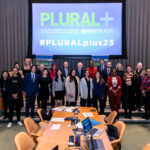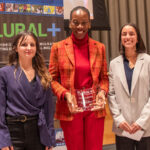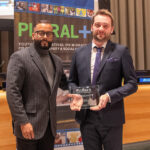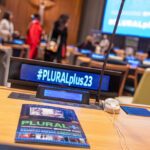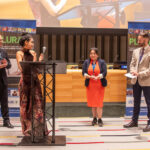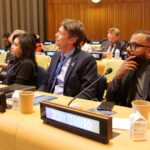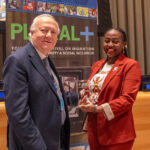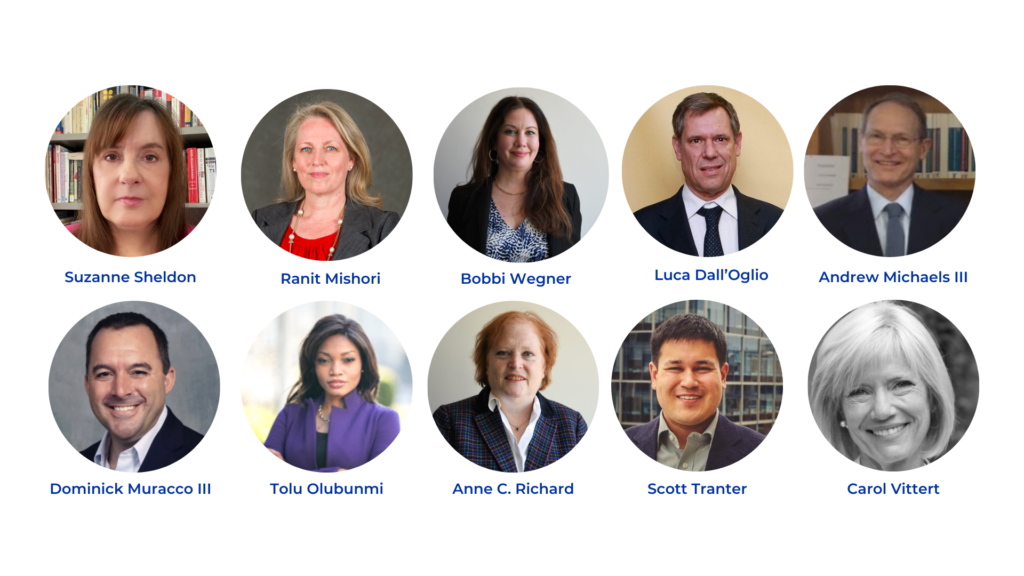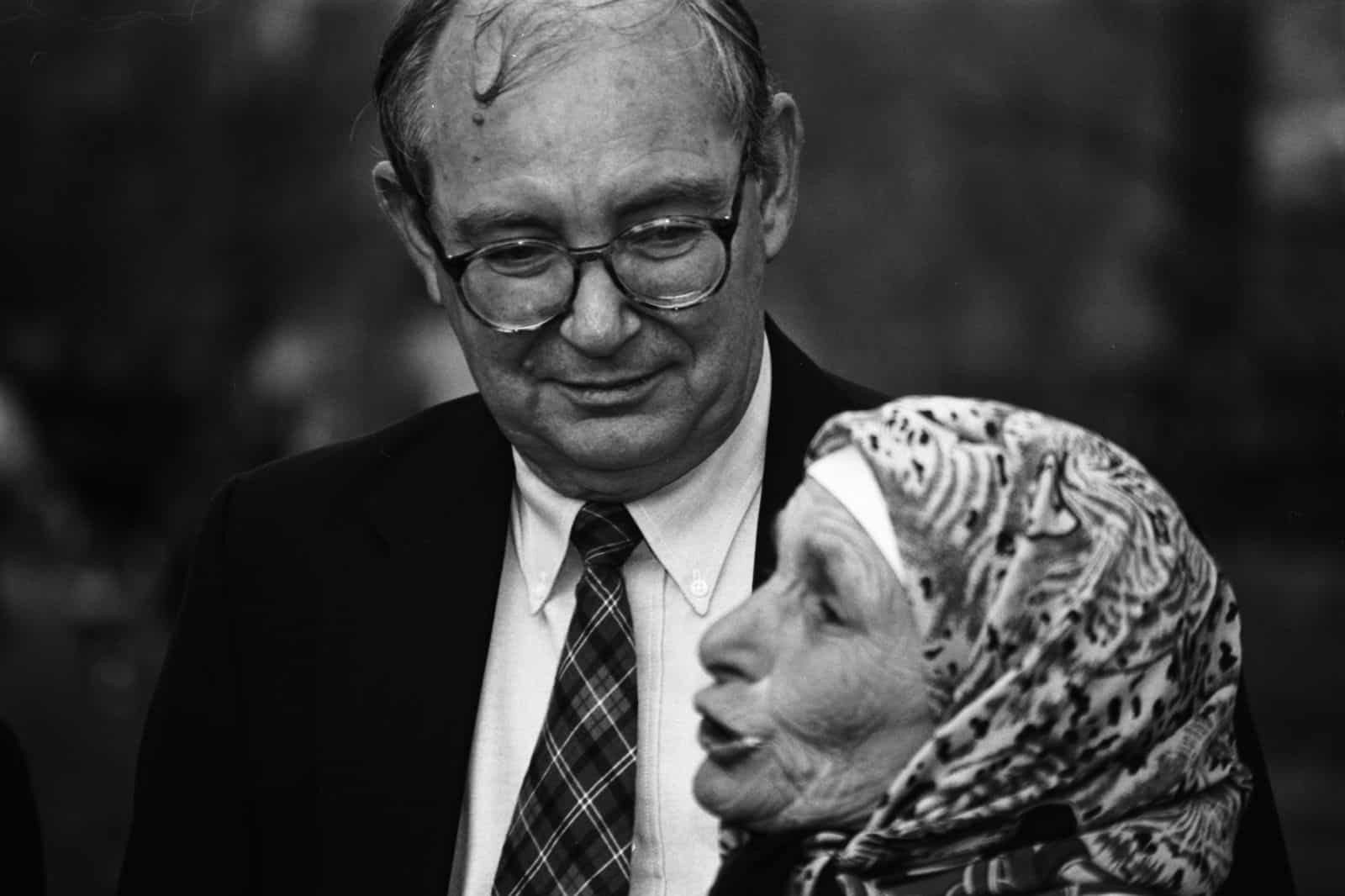
- admin
USA for IOM mourns the passing of its former chairman, Mr. James N. Purcell Jr.
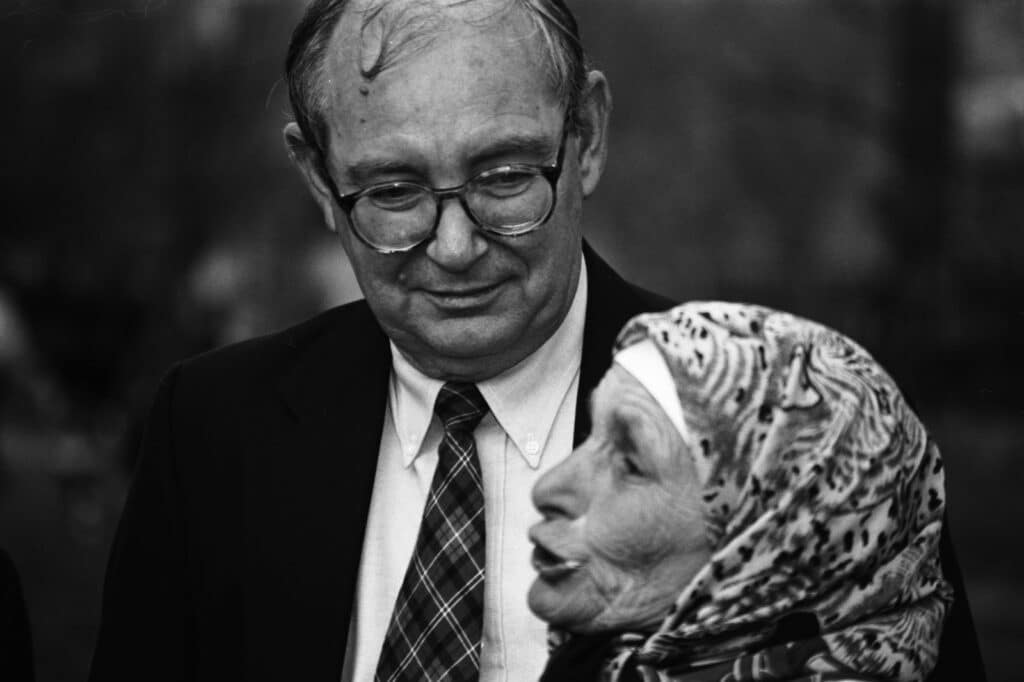
Mr. Purcell dedicated his career to championing the United States Refugee Admissions Program as well as multilateral cooperation on migration issues across the globe. He served as US Assistant Secretary of State for Population, Refugees, and Migration Affairs from 1983 to 1986 and then as Director General of IOM from 1988 to 1998.
Mr. Purcell was actively involved in the leadership of USA for IOM for more than three decades, including as Chairman of the Board, a role from which he retired from in 2022.
He took immense pride in USA for IOM’s growth in leveraging the value of U.S. private sector and capturing the American people’s interest in humanitarian affairs and IOM’s mission to uphold the dignity and rights of migrants worldwide.
Recognized as a mentor, leader, humanitarian legend and advocate for migrants until his last days, he will be sincerely missed.
“Throughout Jim’s long and storied career, he was a tireless advocate for migrants and refugees,” said IOM Director General Amy Pope. “Long after he left IOM, he continued to lend his voice to support in the United States for the work of IOM, including as Chairman of the Board of Directors for USA for IOM. I will always be grateful for his counsel to IOM and to me personally, and for his kindness.”
James N. Purcell Jr. authored the book “We’re in DANGER! Who Will HELP Us? Refugees and Migrants: A Test of Civilization” (2019). The book is a history of events and teamwork among members of the U.S. State Department’s Bureau of Refugee Programs and its protection and resettlement programs, domestic and with international cooperation.

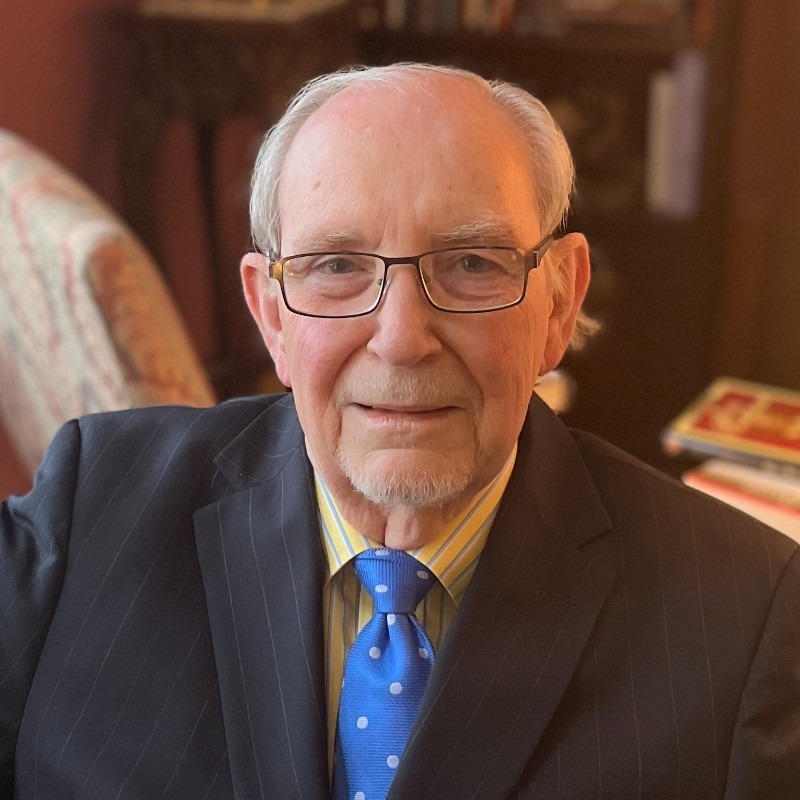
At the request of Mr. Purcell’s family, fulfilling his wish, in his memory donations can be made to USA for IOM to support its mission to raise awareness about our global priorities: climate change, poverty, conflict, counter-trafficking, and the socio-economic integration of migrants.
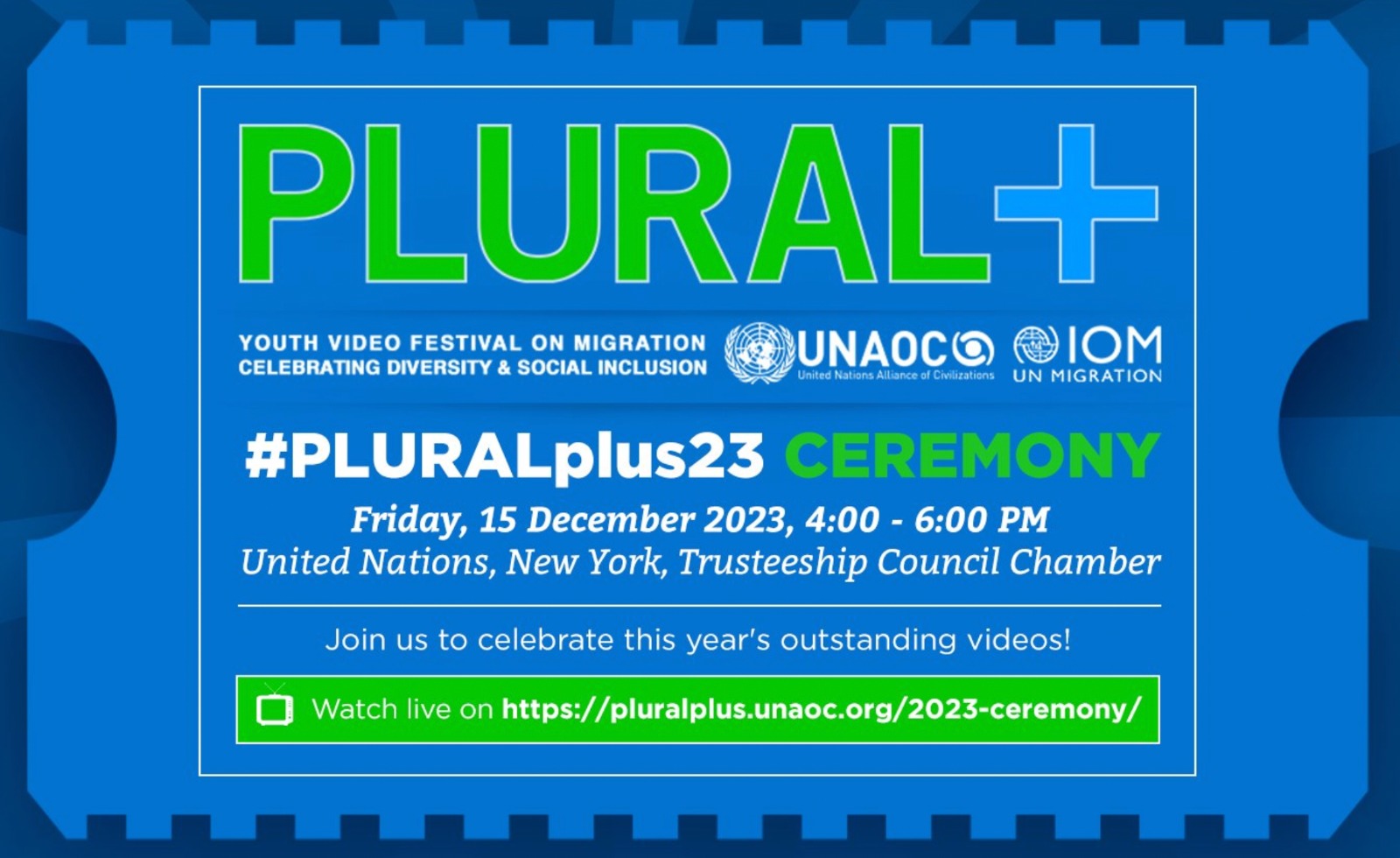
- admin
The UN’s PLURAL+ Youth Video Festival Recognizes Videos of Outstanding Young Filmmakers in its 2023 Ceremony
New York — On Friday, 15 December, the United Nations Alliance of Civilizations (UNAOC) and the International Organization for Migration (IOM) announced the 2023 recipients of their joint initiative, the PLURAL+ Youth Video Festival, during an annual ceremony that took place at the United Nations Headquarters in New York.
A total of 24 films from 18 countries were selected for distinctions by UNAOC and IOM as well as 20 partner organizations based on their powerful and thought-provoking impact related to the themes of migration, diversity and social inclusion. The films originated from Belgium, Brazil, Republic of Cameroon, France, Germany, Guatemala, Iraq, Kenya, Mexico, Nigeria, Pakistan, Peru, Philippines, Republic of Korea, Spain, United Kingdom, United Republic of Tanzania, and the United States of America.
During his welcoming remarks, Mr. Miguel Ángel Moratinos, Under-Secretary-General and High Representative for UNAOC, emphasized how PLURAL+ has become a global platform for fostering the humanistic values of “empathy, understanding, compassion, respect and human dignity…”
“PLURAL+ has a soft spot in my heart. I love all forms of human expressions, especially those expressed through film. Filmmaking is the extraordinary alchemy of capturing emotions, weaving stories and most of all shaping perspectives. It’s the magical realm where the power of imagination meets the art of creation,” he said.
Meanwhile, Ms. Ugochi Daniels, IOM’s Deputy Director-General for Operations, praised the young recipients of the 2023 edition of PLURAL+, reminding youth worldwide of the pluralism that defines us and the strength that comes from our differences.
Applauding young filmmakers for creatively addressing the topics of migration and the contribution of migrants into society, social inclusion, diversity and the combating of xenophobia and discrimination, Ms. Daniels noted that “Each film encapsulates a unique perspective, a tale, or a message that transcends boundaries. These short films are not merely cinematic creations; they are powerful narratives that ignite conversations, foster empathy, and challenge our perceptions of the world,” she added.
“Art is the language of connection,” reflected Jessy Terrero, one of the International Jury members. at the USA for IOM reception celebrating the 15th edition of the PLURAL+. “I was not happy playing parts that reinforced negative stereotypes on the screen and I did not see people who looked like me on the set. That realization is what inspired me to become a filmmaker,” he added, inviting PLURAL+ recipients to continue using art and challenge stereotypes.
The young filmmakers selected for their outstanding videos were honoured and acknowledged in the presence of UN officials, youth stakeholders, as well as representatives of media and civil society.
The recipients of the PLURAL+ 2023 International Jury Recognition (Up to 12 Years Old Category) were represented by Mr. Bastein Martin from Belgium for their short film “Bob le Petit Éléphant”, which tells the story of an elephant named “Bob” who wonders why he is so small and why nature has given him such a long trunk.
Ms. Yein Han from the Republic of Korea was the recipient of the PLURAL+2023 International Jury Recognition (13–17 Years Old Category) for her short film “Letters from Us” that captures the sacrifices made by migrants and their families when they move away from their homelands.
The recipient of the PLURAL+2023 International Jury Recognition (18–25 Years Old Category), Mr. Taleabong Boris Alemnge from the Republic of Cameroon, was acknowledged for his spoken word film “Arts and Arms”, which calls for an inclusive and peaceful settlement of grievances through diplomacy as opposed to armed conflict.
The recipients of the PLURAL+2023 Special Recognition for Combating Xenophobia and Discrimination were represented by Mr. Thiago Gomes from Brazil for the music video “Eu Não Sou Bandido”, which depicts the realities of many who suffer racism and xenophobia every day.
Tai Tanzania from the United Republic of Tanzania, represented by Ms. Nuria Madawili, was the recipient of the PLURAL+2023 Special Recognition for Sport for One Humanity for the short film “Najiamini”, which aims to raise awareness about the challenges faced by students with physical disabilities.
The recipients of the PLURAL+2023 Special Recognition for Migrants Contributions to Societies were represented by Ms. Manon Sabrier-Gesrel from France for a short film “Derrière les Mots”, which underlines that behind the prejudices, stereotypes and words associated with migrants, there are real individuals with stories, aspirations and valuable contributions to make to society.
All of the PLURAL+ videos are now available online on the PLURAL+ website and will be disseminated worldwide. To view the selected videos, please visit: https://pluralplus.unaoc.org/plural2023/
During the reception, The Entrepreneurship in Movement program, supported through the Citi Foundation, was highlighted, sharing inspiring efforts of migrants in Peru and Ecuador who benefit their communities through their businesses.
Should you have any questions, please contact Ms. Rahma Soliman, Media and Communications Officer at IOM Office to the UN, rsoliman@iom.int or +1-212-681-7000 (ext. 210) and Mr. Dogan Asik Strategic Partnerships Consultant at UNAOC at dogana@unops.org or +1-212-963-7158.
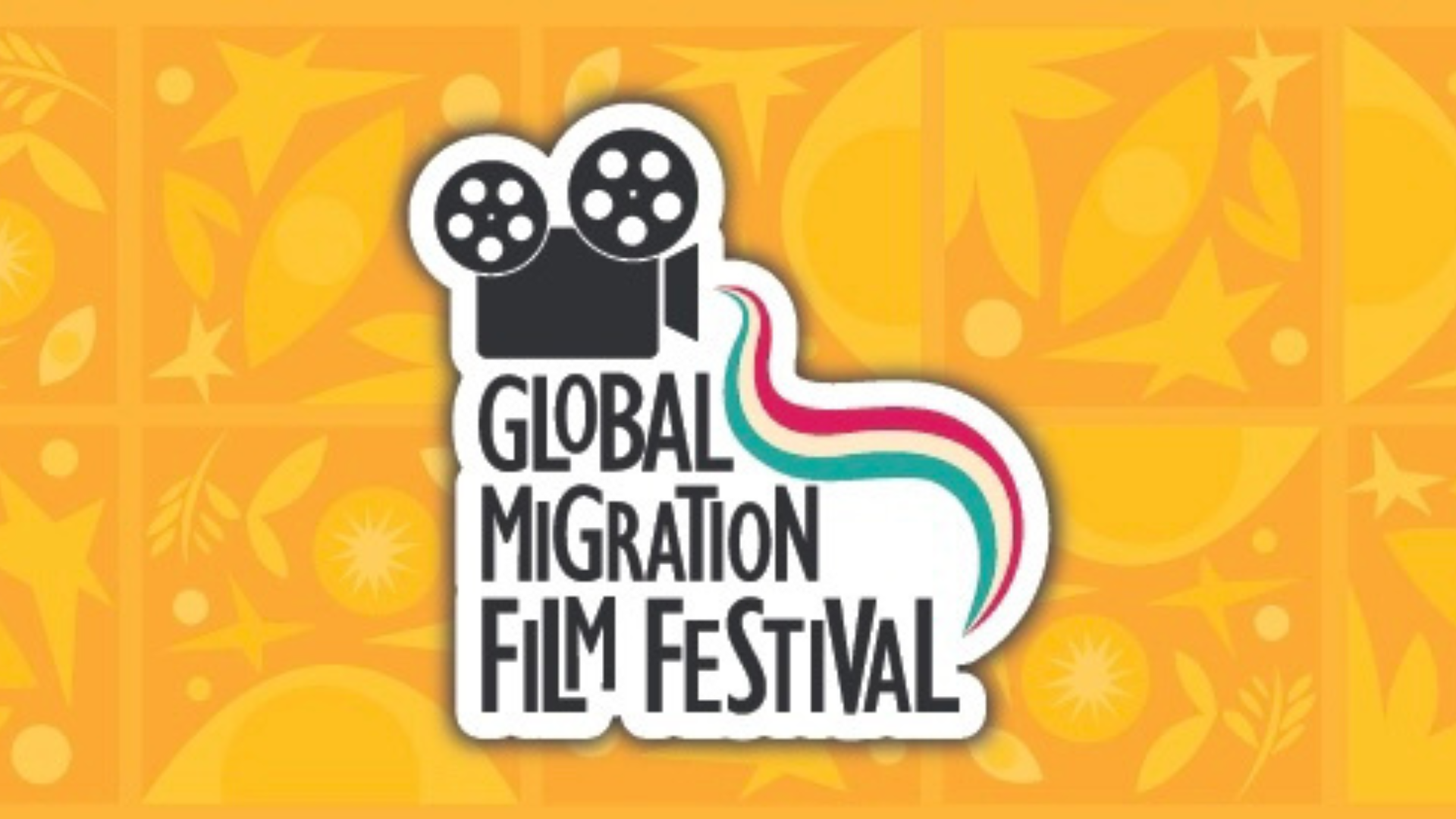
- admin

First ever cross-border film festival to spark essential migration conversations
Both Northern Mexico and Southern Texas face unprecedented migration challenges. Finding innovative ways to build understanding and to create solutions across borders is critical. This November, IOM Mexico joins with USA for IOM in presenting the first-ever Global Migration Film Festival (GMFF) to be hosted in both Mexico and the United States.
The groundbreaking event will take place in El Paso, Texas, with the collaboration of the Consulate General of Mexico in El Paso on November 15th at the Philanthropy Theater / The Plaza Theater at 5:30 pm. The feature movie, “Home is Somewhere Else,” is written and directed by Carlos Hagerman and Jorge Villalobos. The film shares three heartwarming stories of young people sharing their fears and hopes of living in the United States, told through animation and featuring the actual voices of the migrants behind the stories. The event is free and open to the public. After the screening, there will be a dialogue with IOM Chief of Mission Dana Graber Ladek and film director Jorge Villalobos on the significance of empathetic narratives about migrants.
“Through the GMFF, we aspire to honor and celebrate the genuine contributions migrants make to receiving communities. Films have the power to humanize migrant stories and to help people think about them as agents of positive change,” says Dana Graber Ladek, IOM Chief of Mission in Mexico.
The El Paso event is part of a multi-day Global Migration Film Festival (GMFF) hosted by IOM Mexico, which includes eight films to be shown in 14 cities around Mexico. The festival is co-sponsored by USA for IOM. IOM has been organizing Global Migration Film Festivals across the world since 2016. The main objective of these festivals is to leverage the power of cinema to enhance people’s understanding of the migration process and to counteract hate speech and xenophobia directed towards migrants.
For more information please contact:
In Mexico, acabezas@iom.int, +52 55 4525 8361
In the USA: Stacey Cohan, scohan@iom.int, + 1 202 445 9344
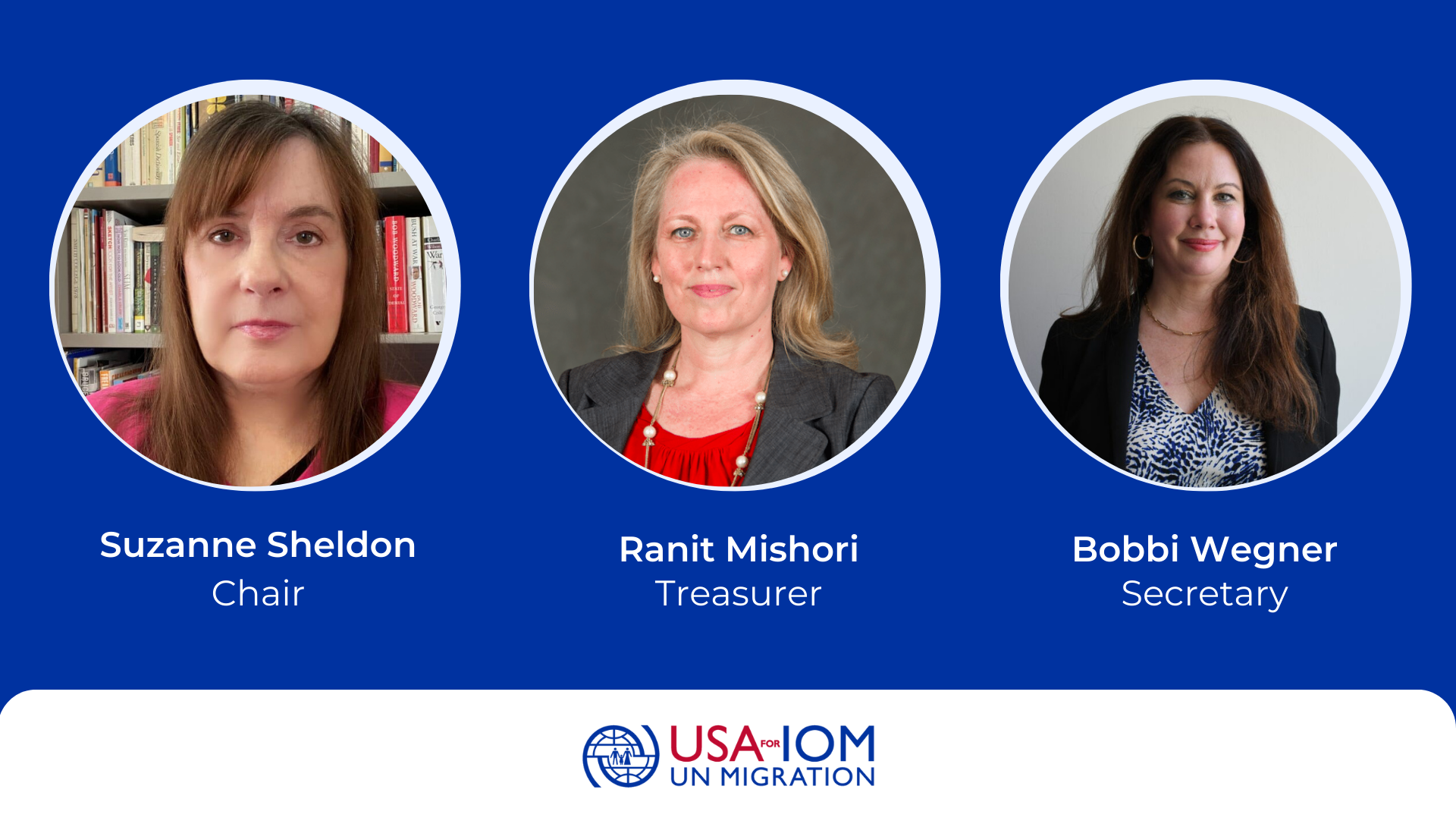
Election of USA for IOM Board Officers
- admin
Election of USA for IOM Board Officers
USA for IOM announces the appointment of our new Board Officers who will guide our nonprofit organization into its next chapter to further enhance awareness and spur action and investment for migration initiatives. The role, vision, and insights of our Board Members are pivotal to forward the USA for IOM mission, both in governance and financial stewardship.
USA for IOM celebrates the appointment of:
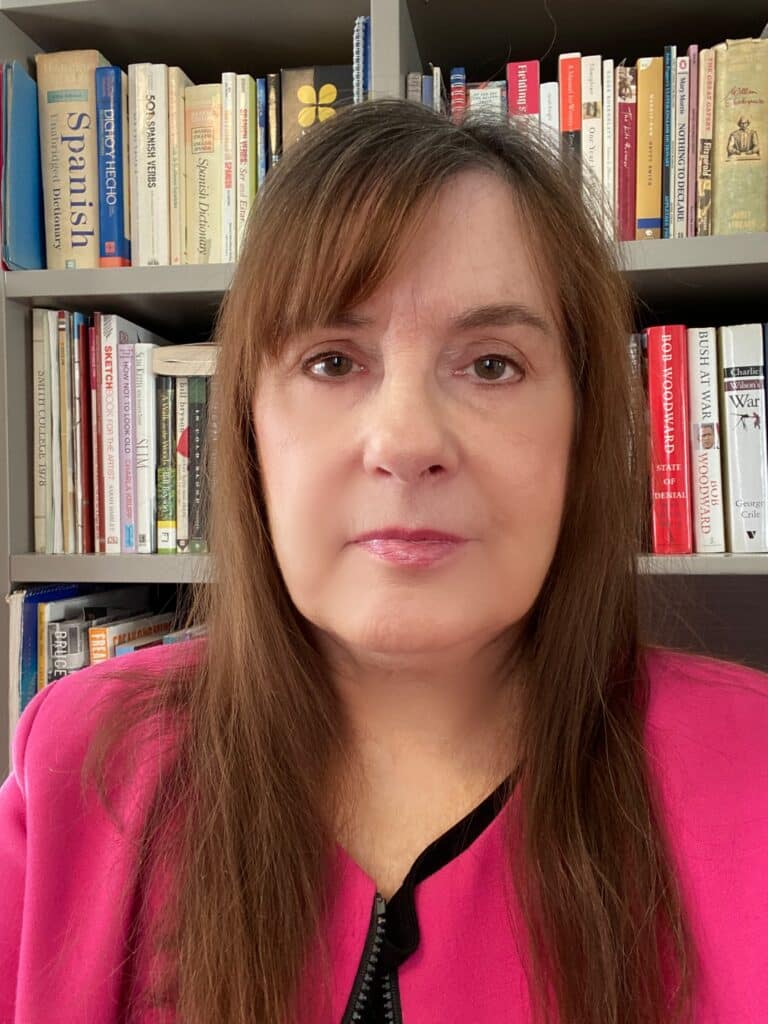
Chair of the Board of Directors, Suzanne Sheldon, was voted in by fellow Board Members. Suzanne Sheldon is a diplomat, lawyer, rule of law and migration policy expert, and Senior Advisor at the U.S. Department of State. Her work has included U.S.-supported life-saving assistance to refugees and vulnerable migrants and leading the team in IOM’s New York office (2017-2019) that supported UN member states on the Global Compact for Migration. She will become the Chair effective November 1st, 2023.
Treasurer of the Board of Directors, Dr. Ranit Mishori, is a recognized physician leader and health expert, working at the intersection of medicine, public and global health and human rights. With expertise in the health consequences of conflict and forced migration, she is a scholar on issues related to migration and health. Dr. Mishori currently serves as Georgetown University’s Vice President and Chief Public Health Officer. With her experience in overseeing budgets, and handling financial responsibilities while serving on multiple boards, she is well qualified for the Treasurer position
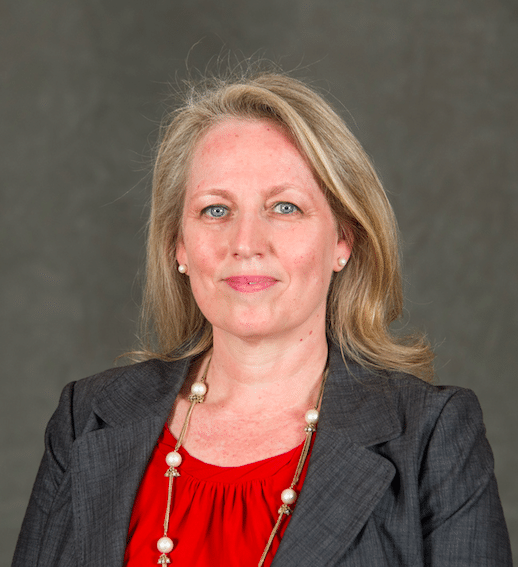

Secretary of the Board of Directors, Dr. Bobbi Wegner is an experienced psychologist, international speaker, author and advisor focused on helping individuals and organizations feel and work their best together. She is the founder and CEO of Groops which brings experts in group and organizational psychology to the office on an affordable, subscription basis to be accessible to teams across the organization. Dr. Wegner also teaches Motivation, Groups and Culture, and Applied Coaching at Harvard University.
USA for IOM expresses gratitude for the dedicated service of Luca Dall’Oglio who served as Chair of the Board of Directors. He is a retired international civil servant who worked with IOM for more than 30 years, most recently serving as Chief of Mission at IOM Washington.
We also want to thank Peter Schatzer, Permanent Observer of the Parliamentary Assembly of the Mediterranean to the UN (Vienna), and long-standing Board Member of USA for IOM, for his service to the Board for more than 12 years. The Board and the entire USA for IOM team extend gratitude for his dedicated service and commitment towards our mission. He previously served IOM for 24 years in various leadership positions.
USA for IOM extends its gratitude to all of our Board Members, whose collective expertise and leadership greatly enhance our efforts, especially during these times of multiple global crises. As we welcome our Board Officers into their new roles, we acknowledge the weighty responsibilities they undertake. With full confidence, we believe their leadership will be instrumental to the continued growth and impact of USA for IOM.
In tandem with our recent significant expansions and our contributions to IOM’s pivotal priorities, we are also eager to grow our board further. Actively seeking new Board Members who resonate with our values and mission will infuse our organization with fresh insights and renewed energy. Their diverse experiences and commitment will be vital as we aim to address the world’s pressing challenges more effectively.
The USA for IOM Board of Directors
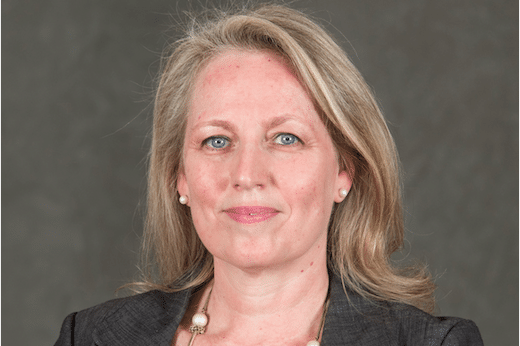
Welcoming Dr. Ranit Mishori, new USA for IOM Board Member
- admin
Welcoming Dr. Ranit Mishori, new USA for IOM Board Member

USA for IOM is proud to announce that Dr. Ranit Mishori has joined our Board of Directors.
Dr. Mishori is a recognized physician leader and health expert, working at the intersection of medicine, public and global health and human rights. With over two decades of experience and expertise in the health consequences of conflict and forced migration, she is a recognized leader and scholar on issues related to migration and health.
< Dr. Ranit Mishori
“As a granddaughter of refugees and a migrant myself, I feel connected in multiple ways to the experience of immigrants and displaced people in their home or host country (or somewhere in between),” said Dr. Mishori.
Dr. Mishori currently serves as Georgetown University’s Vice President and Chief Public Health Officer where she oversees the University’s response to the COVID-19 pandemic and other infectious diseases and public health emergencies. As a member of the senior leadership team she provides strategic advice and technical expertise to all units and divisions across all campuses.
Pre-pandemic, Dr. Mishori was deeply engaged in research, teaching, mentorship and clinical care as Professor of Family Medicine at the Georgetown University School of Medicine. She directed the department’s Global Health Initiatives for over 8 years, directed the Health Policy fellowship, established and directed the Health and Media Fellowship, and led Georgetown’s Practice-Based Research Network, among other academic leadership roles.
Dr. Mishori brings a social justice and human rights lens to all her professional pursuits. From an early start as a journalist covering wars and the plight of refugees for global news organizations, she has been focused on the far-reaching impact of conflict, and ways to relieve related suffering. She continues to report and write on health and medicine, publishing more than 300 articles in the popular media, and more than 80 peer-reviewed health-related articles. As a physician and advocate, she is widely recognized for her research on and work with forced migrants, torture survivors, asylum seekers and people affected by conflict-related sexual violence, particularly as Senior Medical Advisor at Physicians for Human Rights.
Dr. Mishori’s leadership roles are numerous. A Diplomate and a Fellow of the American Academy of Family Physicians – the largest single specialty professional organization in the US – Dr. Mishori has been a deeply engaged leader and advisor on initiatives spanning primary care, global health, human rights, population and community health for a multiple US-based and global organizations.
We extend a warm welcome to Dr. Mishori.
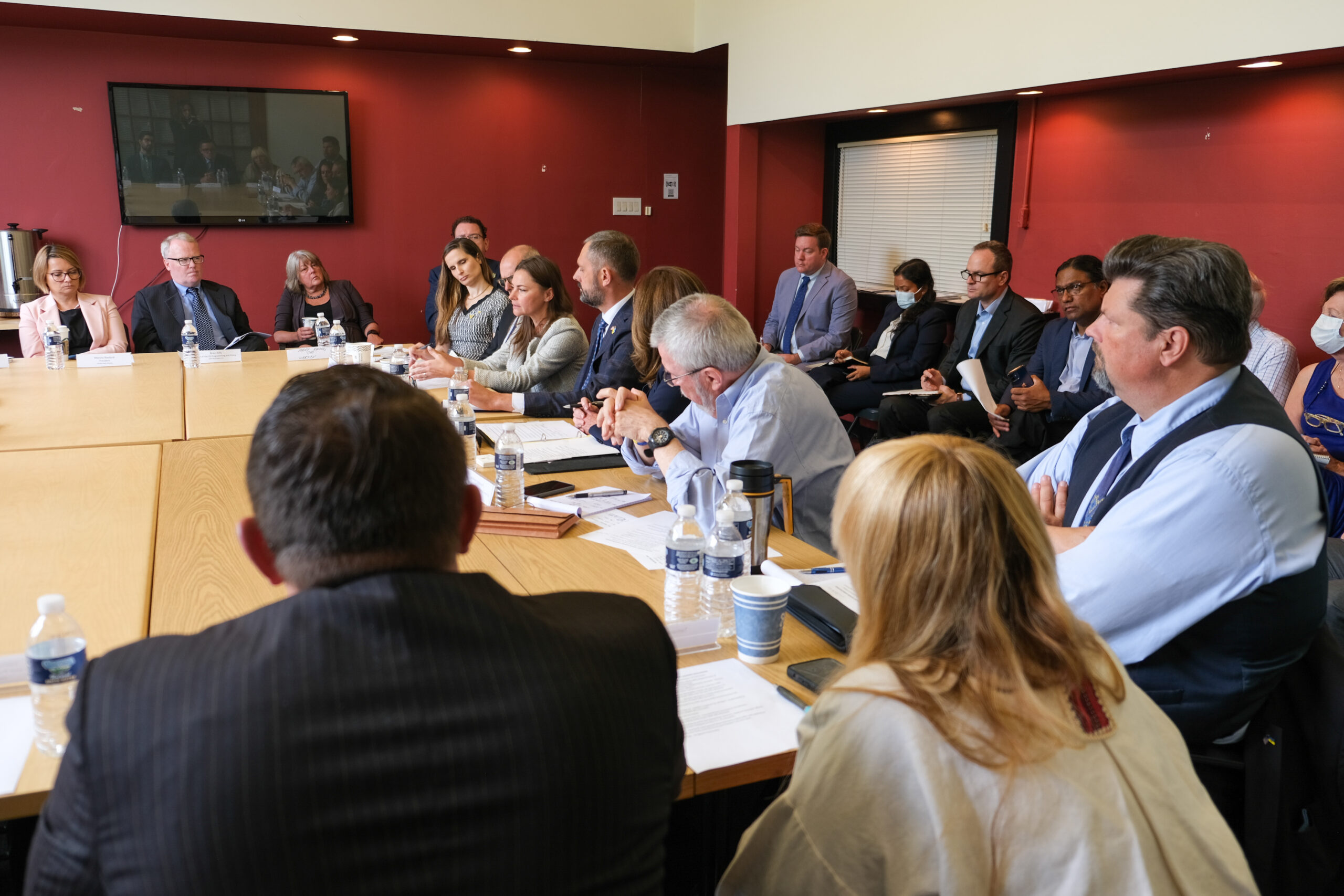
- admin
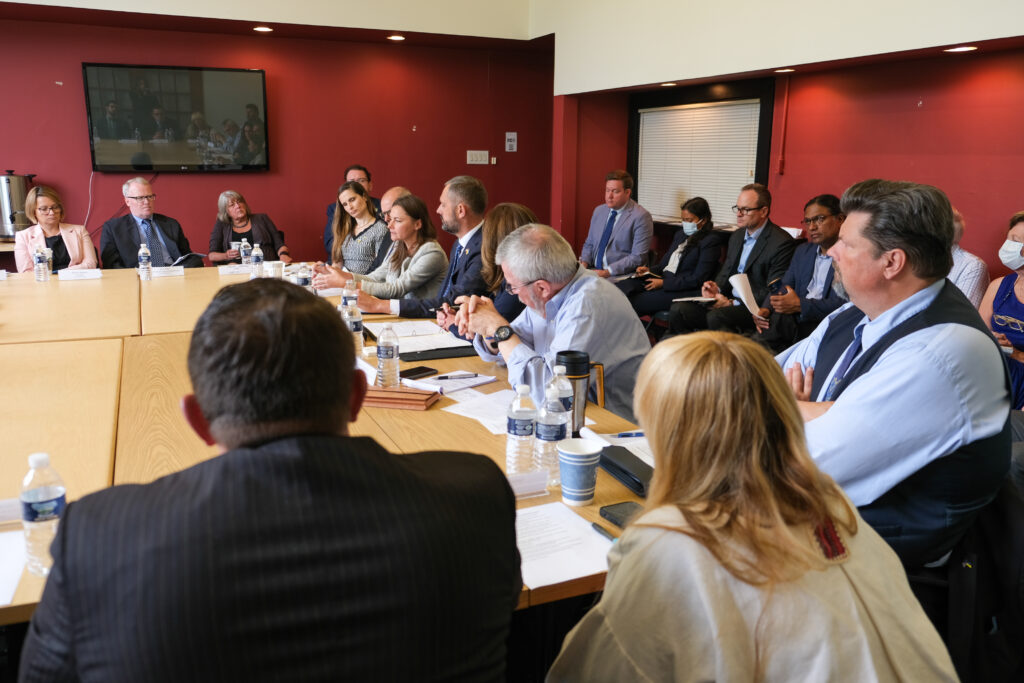
Creating Sustainable Solutions to Recovery with the Ukrainian Diaspora
Ukrainians across the United States are determined to build a better future for their home country.
Beyond providing lifesaving aid since the start of the war, Ukrainian-Americans seek long-term solutions on the road to recovery. Together with partners, the International Organization for Migration (IOM), USA for IOM, and the U.S. Government are actively providing support to the needs on the ground and are prioritizing the innovative strategies being created to fill humanitarian gaps.
As part of their Diaspora Voices and Ukraine Partnership Series initiatives, the U.S. Department of State’s Office of Global Partnerships (GP) held a roundtable event on September 13th with U.S.-based Ukrainian diaspora organizations. The event was a collaboration between GP, IOM, USA for IOM, USAID, and the Ukrainian Embassy in the United States, with the Ukrainian Educational and Cultural Center (UECC).
During the event at the UECC in Jenkintown, Pennsylvania, the Ukrainian diaspora’s vital contributions supporting communities affected by the ongoing war were recognized. The discussion focused on the strengths and experiences of the diaspora organizations, the capacities of government and nongovernmental actors to help sustain existing efforts, continued collaboration and mutual long-term goals for Ukraine. The need to strengthen private sector engagement was recognized as essential to creating long-term solutions.
The critical importance of local actors was emphasized, as was the need for Ukrainians to ‘take back the narrative’ of the war and to tell the personal stories of those affected. Donations have decreased dramatically since the first months of the war, and by showcasing the direct human impact and stories of resilience, the attendees are hopeful the American public will understand why support to populations affected by the conflict continues to be a priority.
The Ukrainian organizations present at the event have extensive experience in providing humanitarian assistance to Ukraine, including sourcing and sending medical kits and other supplies, and traveling to Ukraine themselves to provide direct support to hospitals, schools and other local organizations. These powerful civil society groups are highly motivated to coordinate with large-scale actors to most effectively support ongoing programs that benefit Ukrainian communities.
With over 5.1 million internally displaced persons in Ukraine, there are multiple urgent challenges to be addressed. Roundtable participants discussed steps to recovery, including rebuilding infrastructure, and addressing the collective trauma of Ukrainians and post-traumatic stress disorder, which is widespread.
Since the start of the full-scale war in Ukraine, IOM has refocused its programs and projects, and from February 2022 to March 2023 reached close to three million people with humanitarian support that includes provision of non-food and hygiene items; water, sanitation and hygiene support; multipurpose cash; emergency health and mental health and psychosocial support; assistance to collective centers; protection and other types of support. IOM’s Mission in Ukraine further fights trafficking in human beings, assists the Government in dealing with irregular migration, improving its migration management system, and creating migrant-inclusive health practices and policies. Click here to learn more about IOM’s work in Ukraine.
More than 463,000 people affected by the Ukraine conflict have received multisectoral support through USA for IOM support to IOM’s emergency response. The response focuses on providing shelter, healthcare, cash assistance and immediate basic needs for conflict-affected populations. These include IDPs, host communities and stranded third-country nationals.
IOM engages with diaspora communities globally as part of the 3E Strategy of Engaging, Enabling and Empowering diasporas. To meet the increasing needs arising from multiple crises worldwide, IOM’s work with diasporas not only expands the reach of humanitarian action but leverages their skills and networks, puts agency back into the hands of affected communities, and helps to build more sustainable, long-term solutions to crisis situations.
To learn more about opportunities to partner, contact USA for IOM at usaforiom@iom.int or IOM Ukraine at SMUKRcfm@iom.int. To learn more about IOM’s work and initiatives with diasporas, contact IOM Washington’s Diaspora Engagement Unit at diasporaforhumanity@iom.int.
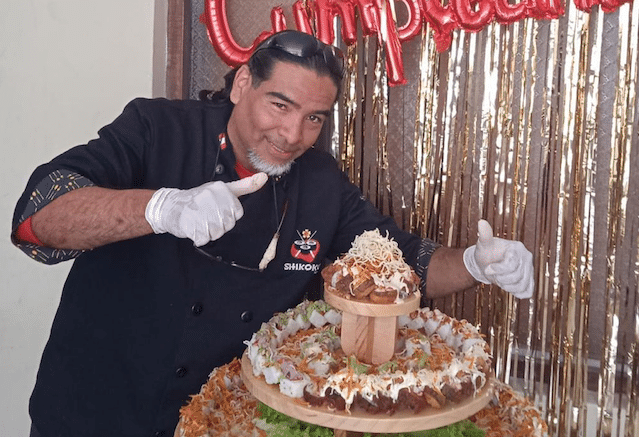
- admin

Jose: "My job is to create dishes that fusion cultures."
José Antonio Bustamante Ortuño is an accountant who managed restaurants in Venezuela. For three years now, he has created a true fusion of cultures through recipes and original meals from his business: Cheo Fast Food.
José is convinced that sometimes life guides us on a path quite different from the one we envisioned, but these detours can lead us to our true destiny. Fifteen years ago, he achieved a seemingly impossible goal, moving to Australia where he unexpectedly ended up studying international gastronomy. This training served him in ways he had never imagined when he decided to migrate to Peru with his family. Although he anticipated challenges establishing his food business, the most difficult obstacle would be having to start over as he adjusted to a new culture. “Thanks to IOM”, he tells us, “I was able to sustain the business and move forward. They helped me and trained me to promote my entrepreneurship, because due to the pandemic, my business was paralyzed, to the point that me and my family of two children, my wife and mother-in-law, were left on the street. I have to say that, even with that incredible help and training, it took us a year to start and get to what Cheo Fast Food is today.”
Cheo Fast Food combines Japanese gastronomy recipes with Peruvian food, using the indigenous products of the region, such as pisco or quinoa, with original sandwiches of his own creation. The business caters to what the people of the host country like, while also attracting customers of other nationalities who choose to live in that Peru. “But always taking of the typical ingredients and gastronomic resources of Peru”, he shares with us. “It’s not easy to sustain a business in a country where there are always new things to discover, but today I feel proud of my creations and of being a person who is dedicated to investigating everything that this country contributes that is healthy, original and innovative in the field of gastronomy to merge it with typical recipes from other cultures. Always with a completely healthy and artisan style of cooking, such as whole meal bread made with sourdough and highly nutritious Peruvian flours directly from origin.”
For José, there is a clear difference in his business model before the aid and training provided by IOM, and after he completed the program. Learning how to enhance his business organization, how to produce profits, and how to best invest in products proved invaluable lessons as he seeks to grow his venture. “I would also like to highlight the importance of mentoring for personal and professional development. They are an essential accompaniment to recovering the strengths we had when we made the decision to change countries. I was lucky enough to be able to do both editions, and the truth is that sometimes because of work I think I don’t need it, or not realize to what extent the state of mind influences the resistance and creativity that I put into my business.”
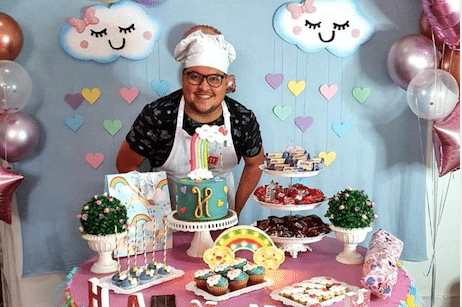
- admin

Axel: "It's not always what happens to us, but how we deal with it."
Axel Rafael Galanton Noriega is the creator of a company based in Lima called Delichef, specializing in artistic confectionery, a wide variety of foods and breads. An entrepreneurship that was born four years ago but began to take shape inside him when he was on vacation in Mexico and saw the incredible range of opportunities for creative cuisine outside his country. It was then that he decided that it wouldn’t take long for him to find the right place to make his passion for cooking his true profession. The vision was realized one year later, the chosen place: Peru.
Noriega faced multiple obstacles and difficulties during this process, although what was most difficult for him was undoubtedly feeling at home as a foreigner. “Anyone would think that if the economic issues are resolved, one is already integrated. It’s partly true, although those of us who emigrate always carry the responsibility of collaborating with our family, so solving the financial situation is not so fast either. But integrating is something else, we also need help with that, because our business can prosper, but without the help I received from IOM, with its training programs and the seed capital, I think it would have been more difficult for me to integrate”.
For Axel, it was this help that allowed him to organize his ideas and focus on what was truly important: interacting with the new community to which he now belonged. He used the IOM training to meet this challenge. He felt strengthened by the sessions of mentoring for professional and personal development, which enabled important advances that served to promote his entrepreneurship. “Since the first mentoring sessions, I have experienced a feeling of peace, which I knew very well where it came from: for the first time I was aware that it is not what happens to us, but how we deal with what happens to us. Also, to feel that things do not happen only to us. Often, when you start a business, you may feel overwhelmed by events, but the truth is that just as we learn marketing strategies or economics to develop a business, in the same way, we must learn to free ourselves from the thoughts that don’t serve us, and use those that make us feel passion for what we do as gasoline. This is the only way we can move forward.”
For this young Venezuelan entrepreneur, the key pillars at the center of his young company will guide his path forward. “I realized that I needed to focus and organize my ideas, which, although they were correct, did not follow a work pattern, something necessary although there is a lot of creativity at stake. Another thing that I began to conquer is giving myself a space to start learning, no matter what because what I get is time for myself and nurturing my creativity. Many times, we get so stuck in our business that we feel we are lost, but if we stop, look around, get some air and continue, everything improves. And finally, I am learning to develop patience and to understand that achievements are not always immediate, but if you do your best, they always come.”
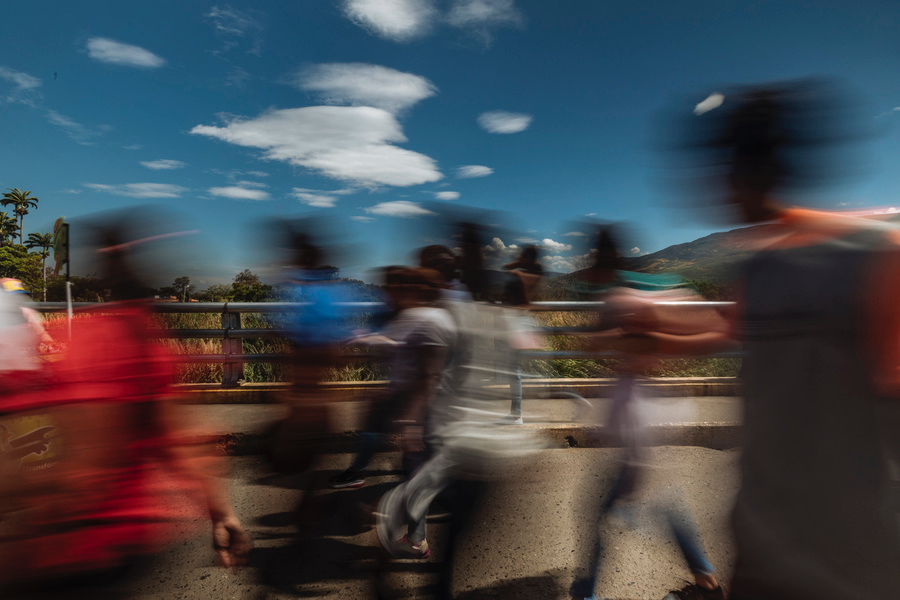
- admin

Ronald: "When you arrive to a new country you ned people to trust you"
Ronald Silva is an expert in soil science and crop production born and raised in Venezuela. When he made the decision to migrate to Peru, he struggled to find his place in this new culture and economy. After five years in his new country, Ronald and his wife decided together that starting his own business was the right path forward. After considering different options, he saw a fantastic opportunity in making and selling cuisine from his native land. He started making traditional tequeños, typical appetizers of Venezuelan cuisine and the dough for empanadas, as cuisine of the country where he was born was gaining fame beyond its borders.
At first, Ronald sold the food ready-to-eat, but when his frozen menu gradually expanded, he decided that this was the future of his business and wished to put all his knowledge and energy into expanding his frozen food customer base. Yet he still struggled to adapt to his new culture, and to form the meaningful connections needed to become a successful entrepreneur.
Ronald struggled with financial stability as he sought to expand his business, “But there was OIM,” he shares with us, “helping and empowering. I confess that with the way of thinking that we brought from having migrated, it was difficult for me to process the idea that there were opportunities for people who came from other countries. But I understood that we could only get ahead if we learned to use the necessary tools to be autonomous. It was not just about our willpower or race. What the new culture did we had to do as well: then the pieces began to fit together, and the entrepreneur who had always been in me then put together the puzzle. Every entrepreneurship idea has a “how”, a “what for” and a “why”, which must necessarily be known.”
He now runs his frozen food business, Ronnytequeños, from Lima and says access to mentoring aimed at personal, professional, and social development was also “a real discovery”, he tells us. “The whole block of mentoring made me understand -session by session- that on many occasions we perceive ourselves as stagnant when something goes wrong, when the accounts do not add up, when we have to decide on an issue, is because we don’t focus where we should.” Today Roland’s business is very different from what he and his wife had originally conceived, and although they still have a long way to go, he insists: “We will always be infinitely grateful to our mentors, for showing us the way to commercial success, from the implementation of key skills in finance, marketing, product, tax issues, but above all because of the trust they helped us gain. Because that’s when you feel that you will be able to achieve your dreams, your goals, and you start to believe in yourself, and you take more steps toward the right direction.”
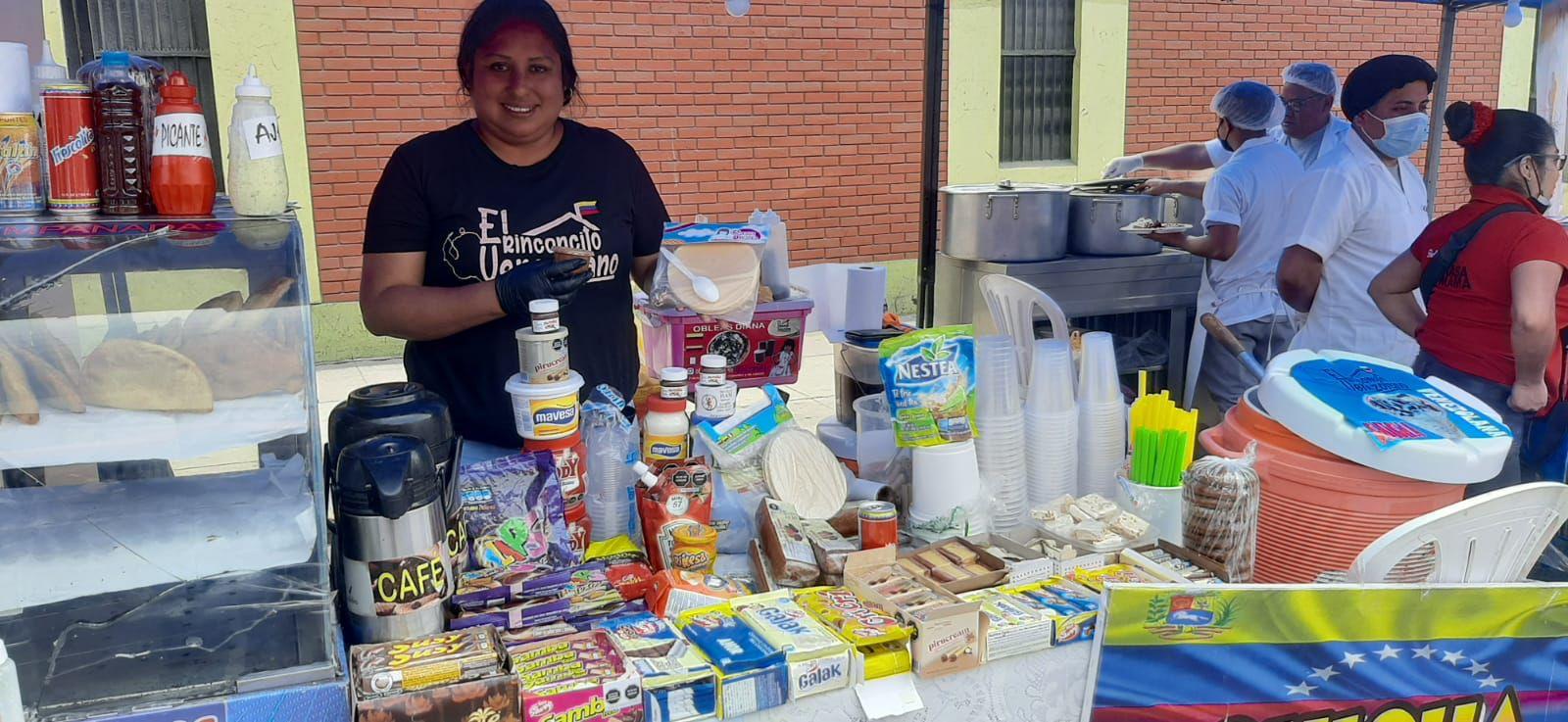
Dayana: “Sometimes life’s ironic”
- admin

Dayana: "Sometimes, life's ironic."
Dayana Rojas, was born in Venezuela, and currently lives in Peru. Dayana tells us: “My ancestors are Peruvian, so we are two generations of migrants between the same countries. This makes everyone in my family feel that we have a double culture because we identify with both nationalities.” According to Dayana, her entrepreneurship has a long history that began when her parents made the decision to return to their country from Venezuela after 43 years. The yearning to return home led this chemical engineer to leave an excellent job in one of the main petrochemical companies to migrate to Peru, although it took a full year to complete the journey. In 2018, when the family was reunited in Peru, Dayana decided to start selling the same confections her father sold back home, Venezuelan chicha. She bought the necessary tools and equipment to make this very familiar treat which is a drink containing rice, milk, sugar and a vanilla base. It requires a two-day production process to achieve the perfect chicha.
“Life’s ironic,” she tells us with a smile, “my father, a Peruvian who learned to prepare the rich and delicious Venezuelan drink, raised his three children in Venezuela thanks to that product, and years later, I do it in Peru”. But for this engineer-turned-entrepreneur, her passion goes beyond chichas. After selling Venezuelan delicacies on the beaches and in schools, in December 2018 she decided that it was time to gather all her products into a single brand focused on Venezuelan gastronomic culture, so she created a name that encompasses everything. Thus, Rinconcito Venezolano was born. The restaurant not only offers empanadas but also small wafers and candies from her country of origin, even sweet sandwiches, desserts and souvenirs. For Dayana, the mentoring for personal and professional development provided by IOM was much more than just support.
It came just at the time when she needed them most. “There were days,” she tells us, “When I would feel so low that I would sit down and procrastinate. I convinced myself to believe that later I would do my duties, but nothing, I had nowhere to get strength. It was as if inside I had never had passion, desire for change, or desire to grow professionally, in short: as if I had never had resources. And worst of all, I felt terribly bad seeing how time was running out for me. After the mentoring, I was able to realize that I was afraid of failing, and it was not something trivial, because the truth is that one of my biggest flaws is perfectionism. Sometimes I think that I do not carry out all my ideas, I am so afraid that it will not turn out perfect that I don’t do it, then I enter a kind of vicious circle, and how does that end? Running out of strength! I am grateful to IOM for the opportunity of joining the mentoring sessions, I keep moving forward, and I manage to do it as I used to, achieving what I set out to do, taking advantage of two of my main strengths: enthusiasm and passion.”

